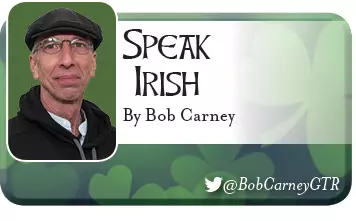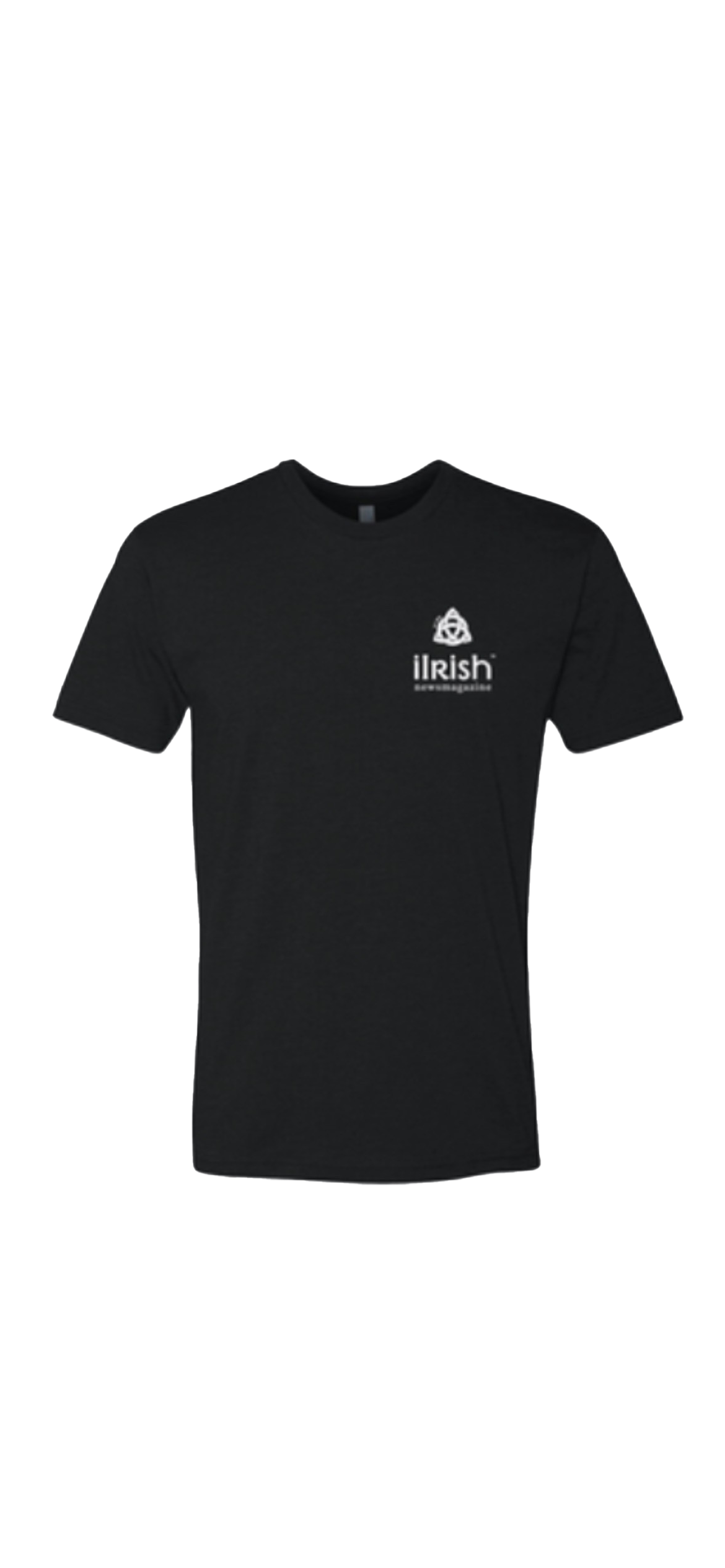Speak Irish: Tús Maith!
- John O'Brien
- August 3, 2020
- Edited 5 months ago
Table of Contents

Speak Irish: Tús Maith!
By Bob Carney “
Trian den obair tús a chur”
(Making a start is a third of the work)
Tá súil agam, go bhfuil sibh go maith.
Sometimes, the most difficult aspect of anything is getting started. Perhaps you’ve glanced at this column before and thought, “Next month I’m going to read this column and start learning Irish.”
But then, next month comes and the topic is the three number systems used in Irish or I try to explain how names change or how words will change depending on the grammatical rules that need to be applied in certain instances.
Well good news! This is a new beginning, even if you don’t know one word of Irish or Gaeilge (gay-la-ga), the word for Irish language (now you know one).
These are the basics of conversation, greetings and introductions. If you’re a regular reader of Speak Irish, there are many new phrases you can work into your growing vocabulary. If you’re paying attention, you’ve noticed that mark over some of the vowels, that’s called a fada (fah-duh) it means long; it’s there to help us in our pronunciation.
As we go a little further, you may see a word spelled differently or even in the phonetics in the parentheses, pronounced differently. That’s because of the grammar involved; no need to worry about that now.
We learned to speak English well in advance of our high school English classes. There are also regional dialects in Irish, so as you try out some of these phrases and someone corrects your pronunciation, it may be they learned the phrase from someone from a certain area of Ireland.
I’ll try to use examples of all three dialects, but I have a tendency to fall back to a Kerry way of speaking. No one is correct or wrong. In Ohio we go grocery shopping, in New Orleans, you might be putting on the groceries.
Learning Irish
Tús maith (toos mah) tús, beginning, maith, good, tús maith or good start.
Tá súil agam, go bhfuil sibh go maith. (taw shool ah-gum guh will shiv guh mah) I hope you’re all doing well. You can easily change the phrase to I hope you are doing well, by changing the pronoun sibh, Y’all to tú, (too) you.
Dia duit (dee-uh gwit) God to you, the usual form of greeting. In other parts of the country this may be pronounced jee-uh ghitch.
Dia daoibh (dee-uh yeev) the form to more than one.
Dia’s Muire duit (dee-uss morra gwit) God and Mary to you, the usual reply.
Dia’s Muire daoibh (dee-us morra yeev) reply to more than one
Here is where it gets fun! Let’s say I haven’t seen you in a long while and when I finally do I’m very excited and I say,“Dia’s Muire duit!” You have to reply, “Dia’s Muire duit is Pádraig!” God and Mary to you and Patrick!
When someone sneezes, we say Dia Linn! (dee-uh lynn) God with us! For the second sneeze, Dia linn is Muire! (dee-uh lynn is morra) God and Mary with us! And so on, adding Pádraig, Bríd and Colm Cille. After which you would say “Capall bán fút! (kah-pall bahn fuut) Literally, A white horse under you.
Bail ó Dhia ar an obair! (by-ll oh yee-uh ar an oh-ber) The blessing of God on the work. This is a greeting used when addressing someone in the middle of work or chore.
An bhail chéanna ort! (an wahl kenna ort) reply to above, The same blessing on you.
Go mbeannaí Dia duit! (guh mah-nee dee-uh gwit) God bless you!
Go ngnóthaí Dia duit! (guh noo-ee dee-uh gwit) May God prosper you! Usually used when parting from someone
Bail ó Dhia oraibh! (by-ll oh yee-uh or-iv) God bless you , when joining a group.
When it comes to Irish, even though these are common phrases, you can see the underlying spiritual reference, everything comes from God
Báisteach ó Dhia chugainn is gan é a bheith fliuch. (bash-tahk oh yee-uh kuh-gan iss gahn ay vay flyukh)
Rain from God to us and may it not be wet.
Cén t-anim atá ort? (kayn tan-um ah-taw ort) What is you name?
Is mise…. (iss mee-sha) I am ….
Conas atá tú? (kun-us ah-taw too) How are you?
Cén chaoi a bhfuil tú? (keh hee will too) How are you?
Cad é mar atá tú? (kuh-jay mar ah-ta too) How are you?
The above phrases all have the same meaning in english, just different regional dialects.
Tá mé go maith. (taw may guh mah) I’m good.
Agus tú féin? (ah-gus too fayn) and yourself?
Go raibh maith agat. (guh rah mah ah-gut) Thank you. Literally, may there be good at you
Fáilte romhat. (fahl-cha row-it) you’re welcome.
Céad fáilte (kayd fahl-cha) you’re very welcome
Céad míle fáilte (kayd meela fahk-cha) one hundred thousand welcomes.
Fáilte romhat abhaile (fahl-cha row-it ah-wahl-ya) welcome home
Tá fáilte roimh an chaife. (taw fahl-cha riv ahn kah-fay) the coffee is welcome.
Slán (slawn) Goodbye.
Slán agat (slawn ah-gut) use this phrase when saying goodbye to someone staying behind.
Slán agaibh (slawn ah-giv) when saying goodbye to many staying behind.
Slán leat (slawn lyat) when someone is going away.
Slán libh (slawn liv) when many are going away.
Slán abhaile (slawn ah-wahl-ya) safe home, when wishing someone a safe trip home
Slán go fóill (slawn guh foil) goodbye for awhile.
If you’re in doubt as to which goodbye is the correct one, don’t worry, just say slán.
Next month we’ll continue with basic conversational phrases and try some example conversations. Until then stay safe and healthy!
*Bob Carney is a student of Irish history and language and teaches the Speak Irish Cleveland class held every Tuesday @PJ McIntyre’s. He is also active in the Irish Wolfounds and Irish dogs organizations in and around Cleveland. Wife Mary, hounds Morrighán and Rían and terrier Doolin keep the house jumping. He can be reached at [email protected]




